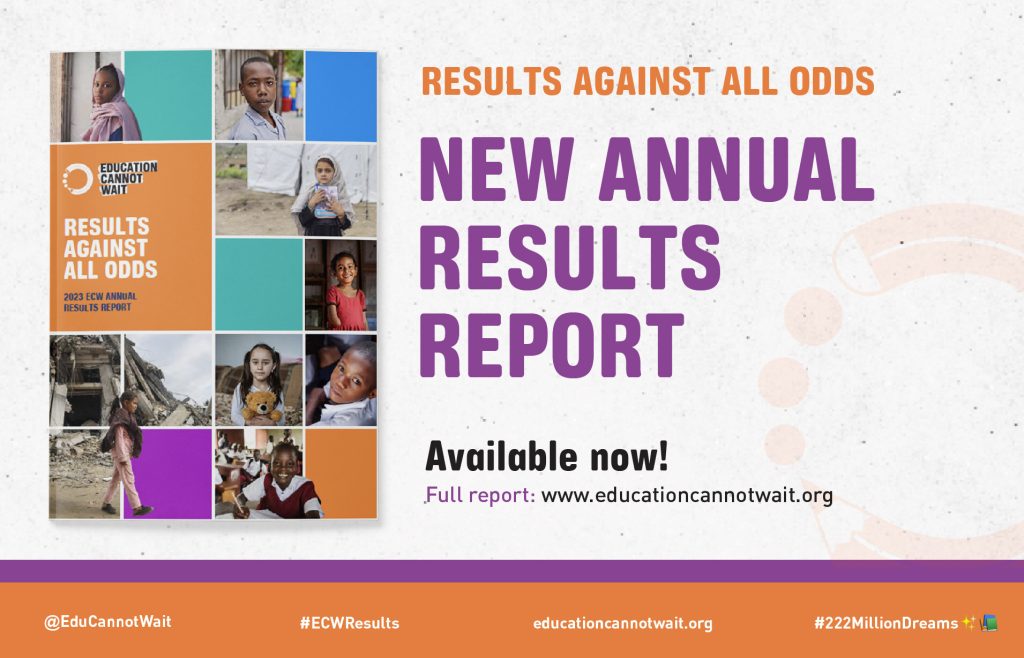The international community is falling behind on its pledge to provide “quality education for all” by 2030, as armed conflicts, forced displacement, and climate-related disasters have left over 224 million children in crisis zones without proper education support. The stark reality is highlighted in the latest annual report by Education Cannot Wait (ECW), a United Nations fund aimed at supporting education in emergencies and protracted crises.
The report, titled Results Against All Odds: 2023 Annual Results Report, was launched in New York and paints a troubling picture. It reveals that while the number of children in need has risen sharply since 2016, from 75 million to 224 million, global funding for education in emergencies has decreased for the first time in a decade. Humanitarian aid for education dropped by 3% from US$1.2 billion in 2022 to US$1.17 billion in 2023, despite the growing need.
Since its inception in 2017, ECW has worked to defy the odds by providing crucial support to children in some of the world’s most challenging environments. To date, the fund has reached 11 million children, with 5.6 million children benefiting from ECW programmes in 2023 alone. However, the report warns that significant funding shortfalls remain, with an urgent call for an additional US$600 million to meet the needs of a further 20 million children by the end of the 2023-2026 strategic plan.
Gordon Brown, UN Special Envoy for Global Education and Chair of ECW’s High-Level Steering Group, urged world leaders to step up their financial commitments, emphasising the transformative power of education. “For our 25 strategic donor partners, these investments represent a commitment to sustainable development, human rights, economic resilience and global security,” he said. “Education is the most powerful tool to restore hope in a world scarred by conflict, human rights abuses, and inequality. It is an investment in the next generation of leaders.”
The report highlights the impact of ECW’s work in crisis hotspots around the globe, including Afghanistan, the Democratic Republic of Congo, Ethiopia, Gaza, Sudan, and Ukraine. ECW’s Executive Director, Yasmine Sherif, stressed the importance of providing education in these challenging environments, saying: “Our report proves that despite these crises, it is possible to offer protection, hope, and the life-changing opportunity of a quality education. However, to achieve this, we urgently need US$600 million to meet our targets by the end of 2026.”
ECW’s programmes have had a profound impact, with 9 out of 10 reporting improved school enrolment and 80% of investments showing improvements in academic outcomes. Notably, 72% of the programmes recorded progress in gender equity, while children’s social and emotional well-being also improved. ECW is making strides in expanding early childhood education, disability inclusion, and mental health support in crisis-affected regions.
A growing concern for ECW is the impact of climate change, with the number of children reached by emergency responses to climate-induced disasters doubling from 14% in 2022 to 27% in 2023. Brown stressed that multilateral aid funding must increase to reverse the current downward trend and called for greater collaboration across humanitarian, development, and peacebuilding efforts. “Education Cannot Wait has shown that the seemingly impossible is indeed possible, provided the funding is available,” he said.


